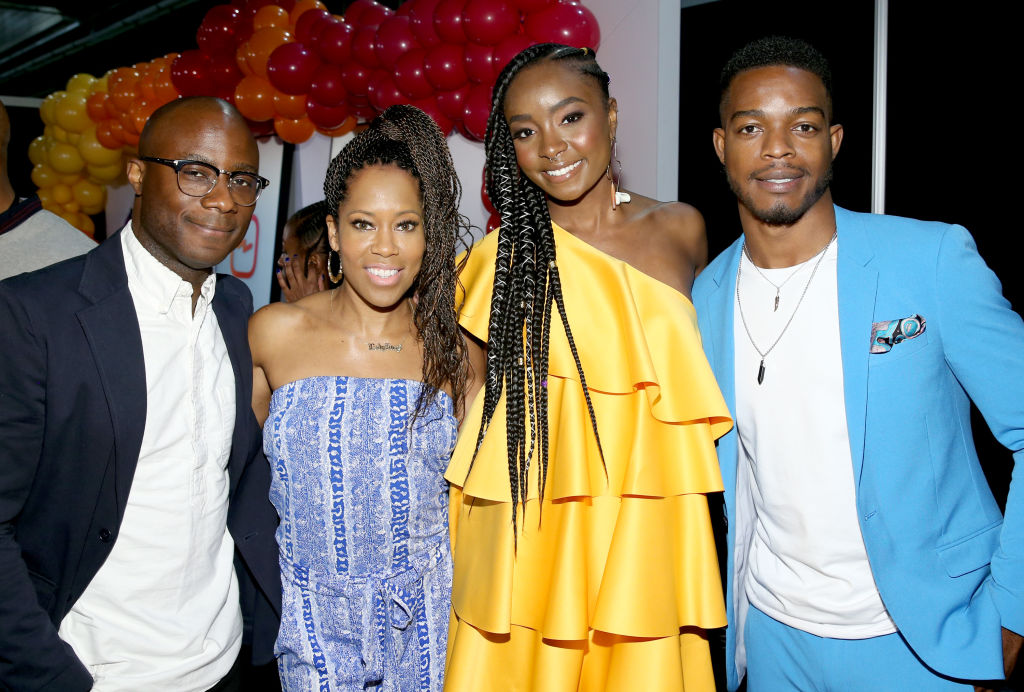OSCARs Exclusive: ‘If Beale Street Could Talk’ Director Barry Jenkins On Race, Representation And Manifestation

Source: Bennett Raglin / Getty
JB: You spoke about Kiki Layne manifesting the role of Tish. What kind of things have you manifested for yourself?
BJ: I don’t think I have. I think my friends have manifested things for me. I’m always terrified of all the things I make, you know, but I keep friends around me, my producer, my editors, my cinematographer since film school, literally sixteen years now, whenever I get hesitant they push me to this place.
Looking backwards I can see how so many things have haphazardly added up. So I think that way and then I remember, ‘Oh THIS friend said you have to do this, or this friend said you can’t stop, you have to keep going.’ Some of us build villages and communities who help us manifest, but Kiki – oh man – she definitely manifested this movie. She did that. Literally. She was not on our radar, she should not have auditioned for this film, she saw a paper, she was helping her homeboy out, and she was like I am going to do this and she did it.
JB: Kiki talked about her shock as a woman with her hair texture and skin color winning a leading role, you’ve done so much in terms of uplifting black women and creating strong roles for black actresses. Can you talk about the importance of that?
BJ: It’s interesting though, I can’t take credit for those things because it doesn’t occur to me.
JB: You’re not intentionally casting this way?
BJ: With the main character in this film, yes, it was very clear to me that she needed to be a dark-skinned black woman. For sure. That is highly in fidelity to the text. [Laughs] This is going to work against that argument, because Stephan James’ character in the book is definitely mentioned as being light-skinned, it’s a point and a fact, but we cast a dark skinned actor for it. I can’t say that I’m doing this as a mission statement, you know, it’s a meritocracy. It didn’t occur to me that Kiki’s hair was a certain way that was going to add political agency to the role. I didn’t see it that way. Now I’m not blind. I totally understand how it functions but I can’t take credit for it. If anything I can say these people have wells of talent. I see it. And if people can’t see it because of the way they look or the way their hair is, or how much melanin they got that’s a problem. But it’s not a problem that I’m trying to counteract.
Hit the flip to continue








Comments
Bossip Comment Policy
Please read our Comment Policy before commenting.